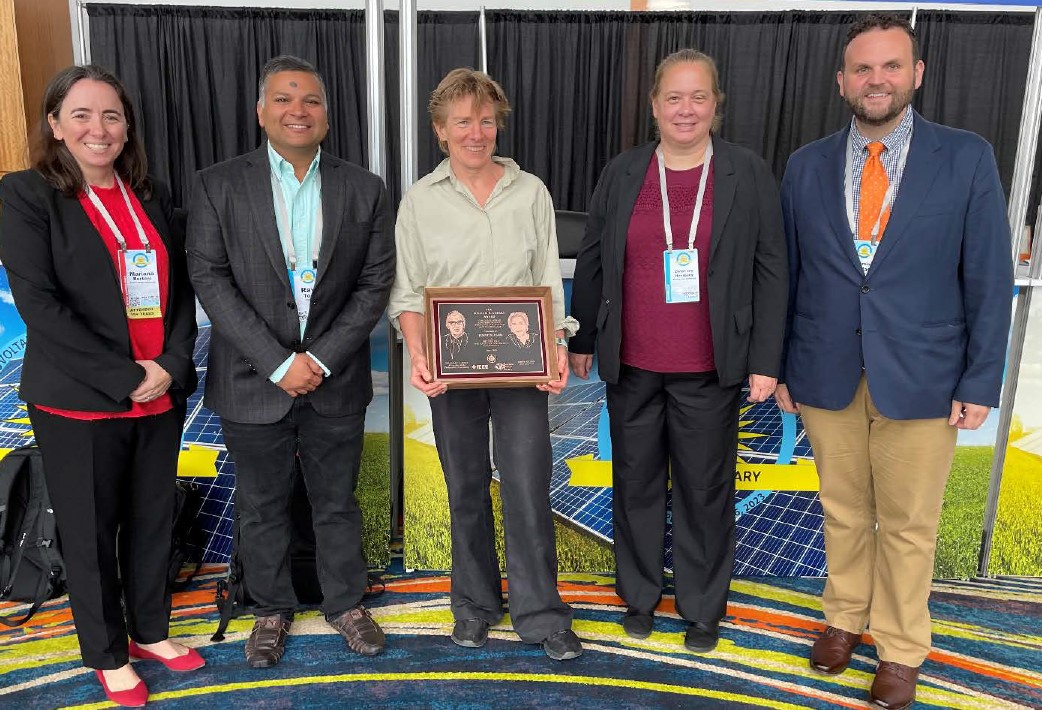At the recent IEEE Photovoltaic Specialists Conference (PVSC) in San Juan, Puerto Rico, SuperSolar Investigator Professor Jenny Nelson of Imperial College London was presented with the 2023 William R. Cherry Award.
The IEEE William R. Cherry Award is named in honor of one of the founders of the photovoltaic community. In the 1950’s he was instrumental in establishing solar cells as the ideal power source for space satellites and for recognizing, advocating, and nurturing the use of photovoltaic systems for terrestrial applications. The William R. Cherry award was instituted shortly after his death in 1980, and recognizes an individual engineer or scientist who has devoted a part of their professional life to the advancement of the science and technology of photovoltaic energy conversion.
PVSC Conference Chair Mariana Bertoni, IEEE EDS President Ravi Todi, IEEE William Cherry Award winner Jenny Nelson, Christiana Honsberg, and Program Chair Jeremiah McNatt.
In her Cherry Award acceptance talk, Professor Nelson discussed the need to use all the tools at our disposal to continue the proliferation of photovoltaic deployment to meet the needs of decarbonizing with solar and presented some of the highlights of her 33-year research career.
Jenny Nelson is a Royal Society Research Professor based in the Physics department at Imperial College London, where she researches novel materials for solar energy conversion. She holds degrees in physics from Cambridge and Bristol Universities. She started research into photovoltaic materials in 1989 when she joined Imperial as a post-doc to study III-V semiconductor heterostructures for use in solar cells. She moved on to investigate the electronic and optical properties of dye-sensitised solar cells when an EPSRC Advanced Fellow, and later to explore organic semiconductors and solar cells. Her consistent goal has been to understand how the different material systems and device architectures achieve photovoltaic action, and how performance can be optimised. Her current research is focussed on understanding structure-property relationships in molecular and hybrid semiconductor materials and how these relationships influence the mechanisms of solar energy conversion. This work combines basic experimental (electrical, spectroscopic and structural) measurements with simulation of materials and devices. She also works with the Grantham Institute for Climate Change at Imperial to evaluate the carbon emissions mitigation potential of renewable energy technologies. She is an ISI Highly Cited Researcher and has published over 300 articles, several book chapters and a book on the physics of solar cells. She has received several awards including the 2009 Joule Medal and 2016 Faraday Medal from the Institute of Physics and the 2012 Royal Society Armourers and Braziers Company prize. She was elected as a Fellow of the Royal Society in 2014 and an Honorary Fellow of the Institute of Physics in 2021.

